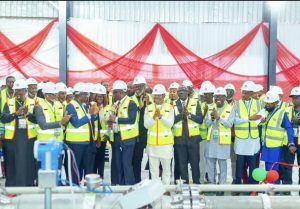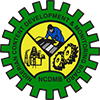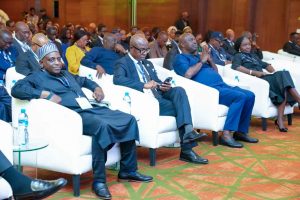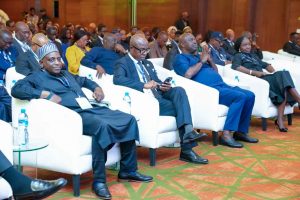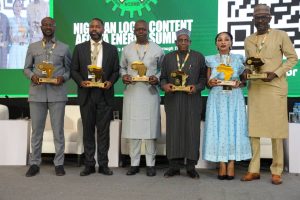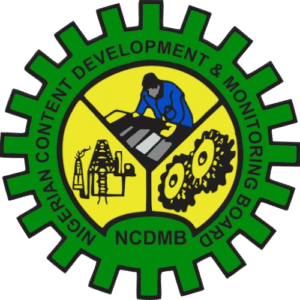At the recently concluded Offshore Technology Conference, OTC, in Houston Texas, USA, the Executive Secretary, Nigerian Content Management Board, NCDMB, Mr. Ernest Nwapa, spoke on three years enactment of the Nigerian Content Act and other industry-related issues, as captured by Clara Nwachukwu and Sebastine Obasi. Excerpts:
A lot have been said about the PIB, what is your opinion of the bill in relation to the Content Act?
I have the firm belief that the PIB will make investments flow. It is a very good assumption. We believe that once the PIB is passed, there would be a lot investment inflow. That is conventional wisdom. As I said in my short remarks (during the panel discussion), if the PIB is passed and investments flow and those investments produce revenues for Nigeria that is expected. But what we have been looking for is the kind of impact that can give us employment on top of the revenue. That type of impact will not come from investments that do not result in domiciliation.
It is a good thing that we have had a three-year head start from local content. The three–year start that we have had from local content has enabled us to create some capacity in Nigeria such that as the PIB is being passed and investments are coming, we will then have jobs arising from the investments.
Where we are today, if Petroleum Technology Association of Nigeria, PETAN companies, if service companies, our multi-national companies do not establish yards where they do things in Nigeria, when the investments from the International Oil Companies, IOCs come, if they are investing $50 billion and $45 billion goes back to their countries, we have only touched the surface of the water.
We need to go deep and that is the responsibility of the Nigerian Content Development and Monitoring Board, NCDMB, working with the industry to create these facilities, to expand these shortfalls. That is why the Honourable Minister for Petroleum Resources is pushing that we launch the industrial parks project, what we call the Nigerian oil and gas industrial parks scheme, NOGIPS. This will create the opportunity where we use the Nigerian Content Fund to create some satellites close to the oil fields and get local entrepreneurs to bring the OEMs, the big manufacturers such as GE, which we all saw today.
If tell the big manufacturers to come and manufacture in Nigeria, they ask you how do we get power? How do we get land? How do we deal with community issues? We want to take away all those problems from them by setting up industrial parks. In those parks we will have electricity, we will have infrastructure. They come in the communities are friendly with us. They know we mean well. We have experimented in Kpolaku, Bayelsa State. We have moved in there. We have bought land, which we have cleared. We are welcome by the community. We are going to expand that. By the time we finish it, it will be a mini estate.
The responsibility of the manufacturers will be to come there and select the local partners that would manufacture their local components. They will just plug and play. That is the facility we are trying to introduce now. That is the area we want to go because this whole issue of bringing in investments. So, it is one thing to get investments in, because we need to sustain our revenue from oil production. But the real end game for us is when as we are getting the revenue, we are getting our people working.
Our people cannot work in NNPC, Shell and Chevron. You know what it takes to employ. You can only employ about 150 people. If you have 10 or 20 government agencies, they cannot employ more than 50,000 people. The projects that would employ multi tiers is when we start having these people that are working every day, manufacturing components, manufacturing consumables. That is the focus and that is the strong linkage between the Nigerian content law and the PIB.
How then would you describe three years of Nigerian Content? Can you say it has been successful, and what have been the challenges?
Your guess is as good as mine. I do not believe in talking about my own performance as a Board, but the feedback we get like all the oil companies, the service companies advertised for the three-year anniversary. I said to my Board that we should not over celebrate it this year. Let other people give their own testimonies.
The testimonies are clear. If you look at expatriate utilisation, we are controlling it. We are telling them to go and find Nigerians to partner with. That is very fundamental. The contracts that are being awarded, you will see that mostly all the contracts have Nigerian participation if not completely, but up to 80 – 90 percent Nigerian participation.
Discover more from Nigerian Content Development & Monitoring Board
Subscribe to get the latest posts sent to your email.

